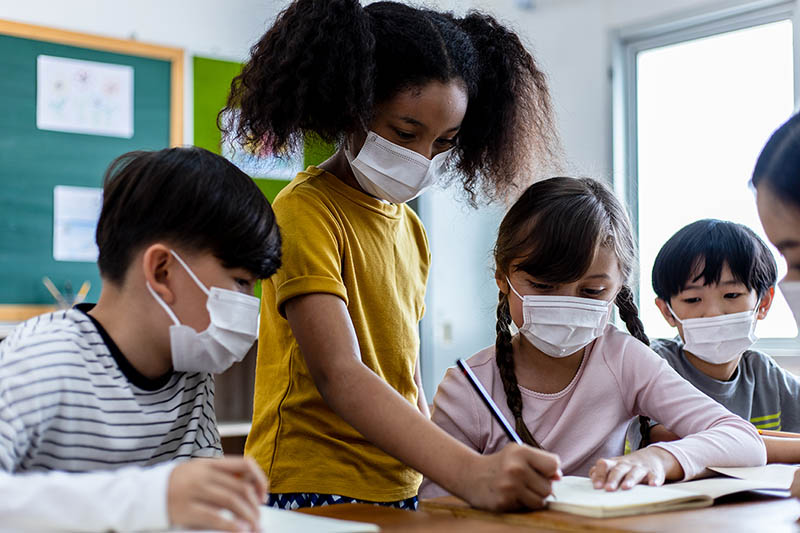

Making friends is not only essential to a child’s social and emotional development—having friends increases their sense of belonging. The Peer Relationships in Childhood Lab at UBC has launched a new study to better understand how teachers’ behaviours and actions affect friendships in the classroom.
Dr. Amori Mikami, professor in the department of psychology and director of the Peer Relationships in Childhood Lab, studies how children make friends, how friendships influence children’s adjustment, and why some children have trouble making friends. Dr. Mikami designs interventions and strategies that train teachers or parents to assist children with peer problems.
Dr. Mikami joins us to discuss the research project Children’s Interpretation of Teacher Behaviours Study and how Canadian parents can join the study with their child.
How can a teacher’s behaviour help children to make and keep friends?
A teacher’s interactions with a child are observed and scrutinized by the other students in the class. Therefore, teachers can have a lot of power to affect the impressions that other students have about a child, and whether other students want to be friends with that child. We are conducting a study to better understand this process. We hope the results will help teachers better understand how their actions are taken by students.
How does the study work?
We are enrolling families of children in grades 1-4 in Canada for a 30-minute, online study. Each child, along with their parent, will watch animated videos about a teacher interacting with students in different ways, and will be asked questions about why they think the teachers are doing these practices. Families will receive a $20 CAD gift card to amazon.ca.
How can people sign up to take part?
Parents can click the link here to check their eligibility and sign up.


